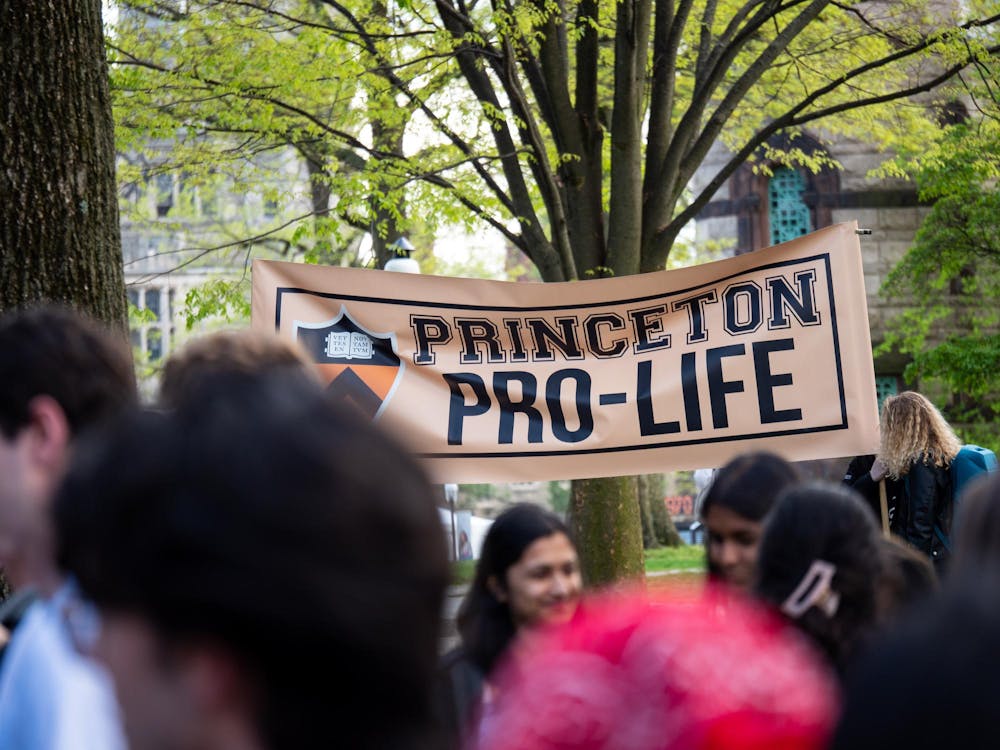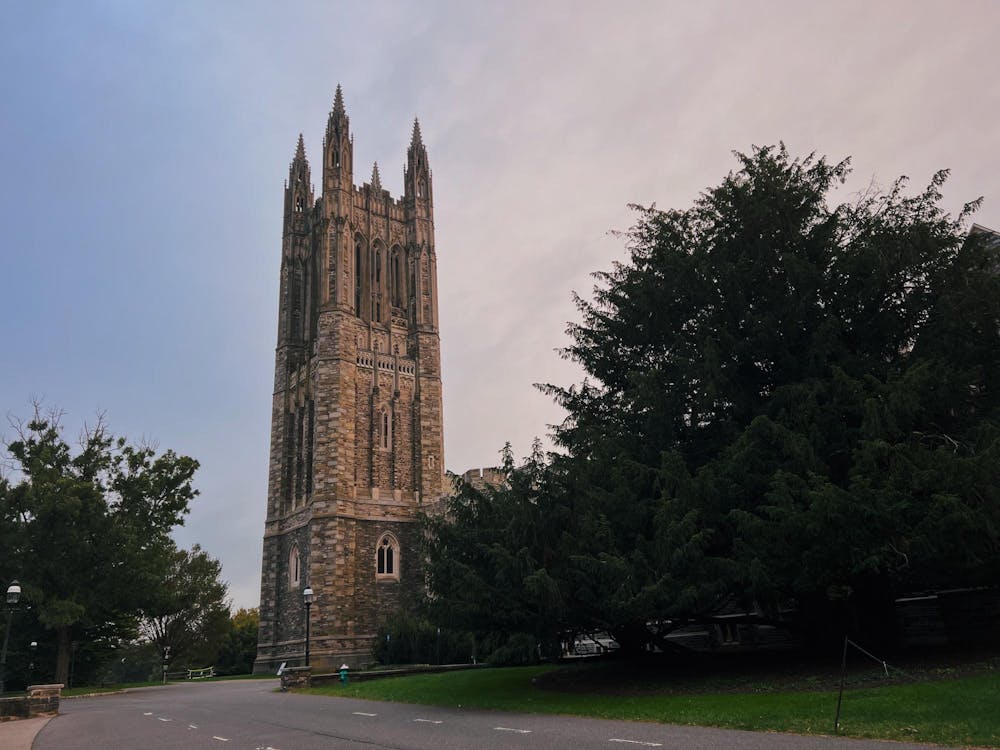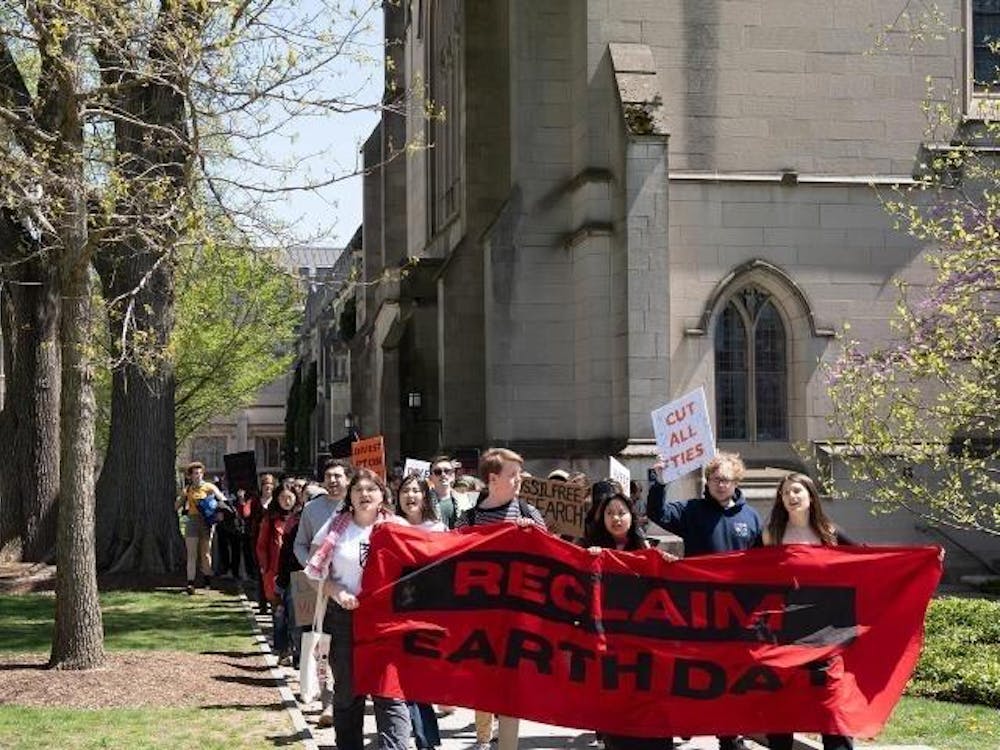Three decades later, Kagan is the first female solicitor general of the United States and one of the leading candidates for President Barack Obama’s nomination to fill the seat of U.S. Supreme Court Associate Justice John Paul Stevens, who is due to retire when the court’s term ends this summer. Yet despite her life in the public eye, Kagan has kept her political beliefs largely under wraps, sparking discussions about where she would fall on the court’s political spectrum and how her intellectual capabilities would match with the demanding life of the court.
Yet a glance back at Kagan’s undergraduate years at Princeton reveals a young woman who, even if restrained, was passionate about political life. Her senior thesis, the editorials published under her tenure as editorial chairman of The Daily Princetonian and her campus activities, as well as the words of those who worked closely with her at Princeton, shed light on Kagan’s commitment to political activism and her liberal beliefs.
A history major, Kagan had a strong interest in political history — especially labor movements and radical politics — and was passionately committed to her studies. History professor Sean Wilentz, who advised Kagan on her senior thesis, described her as “one of the most extraordinary people I’ve met in my life, let alone teaching at Princeton.”
Kagan was an organized and meticulous student, with a sparkling wit and mind, whose burgeoning journalistic instincts were expressed in her frequent note-taking, Wilentz said. In addition to her intelligence, she was good humored and fun to be around, he added. “She’s very full of life,” he explained. “Very vital, very vivacious.”
Yet Kagan was also more guarded in discussing politics and in her social life. “She had a reserved side,” Wilentz noted. “She’s not the kind of person to go on ‘Oprah.’ But with those boundaries, she’s just a delight to be with. You’d like to have [her] as a friend.”
Under Wilentz’s direction, Kagan spent her senior year conducting research for her thesis on the history of the socialist movement, which was titled “To the Final Conflict: Socialism in New York City, 1900–1933.” Her thesis has been criticized by her opponents for revealing sympathies with the Socialist Party and became a source of controversy when she was a potential nominee for Associate Justice David Souter’s seat on the Supreme Court last spring — a position which instead went to Sonia Sotomayor ’76 — and when she was nominated for her current position of solicitor general in January 2009.
“Americans are more likely to speak of a golden past than of a golden future, of capitalism’s glories than of socialism’s greatness,” she wrote in her thesis. “Conformity overrides dissent; the desire to conserve has overwhelmed the urge to alter. Such a state of affairs cries out for explanation.”
She called the story of the socialist movement’s demise “a sad but also a chastening one for those who, more than half a century after socialism’s decline, still wish to change America ... In unity lies their only hope.”
But Wilentz defended Kagan against her critics, noting that she was adept at removing her personal beliefs from her academic research on labor and radical history. “Sympathy for the movement of people who were trying to better their lives isn’t something to look down on,” he explained. “Studying something doesn’t necessarily mean that you endorse it. It means you’re into it. That’s what historians do.”
Kagan said in her thesis acknowledgements that her brother’s “involvement in radical causes led me to explore the history of American radicalism in the hope of clarifying my own political ideas.”
Yet even if a deeper understanding of the Socialist movement helped Kagan understand her own beliefs, she did not follow her brother’s path.
“Elena Kagan is about the furthest thing from a socialist. Period. And always had been. Period,” Wilentz explained.

Outside her academics, Kagan served as editorial chairman for the ‘Prince,’ where she was responsible for the opinion content of the paper and the unsigned editorials that appeared almost daily — many of which took decidedly liberal stances on national and campus issues.
Like Wilentz, Steven Bernstein ’81, the ‘Prince’ chairman who appointed Kagan to her position, said that Kagan’s remarkable intellectual capacity made her stand out.
“Elena was an obvious choice for me as editorial page editor because she formulated her opinions beautifully, even back then,” he said. “They were very tightly reasoned, clearly thought-out, fair, forceful, cogent.”
Prior to being appointed editorial chairman, Kagan was a news writer for the ‘Prince.’
In her capacity as editorial chairman during her junior and senior years, Kagan spent nearly every evening at the ‘Prince’ newsroom. But Bernstein cautioned that Kagan likely did not write all the editorials. “That wasn’t her style ... She was a very collaborative person,” he said.
One set of unsigned editorials published in the spring of 1980, written in response to the federal government’s discussion of reinstating draft registration, attacked the militaristic identity the country was headed toward. The nation was “unfortunately” moving toward “an era in which myopic and over-sensitive ‘national pride’ precludes the thoughtful search for alternatives to an unnecessary draft registration,” it said.
The pieces also criticized President Jimmy Carter, claiming that “the president has always been a better campaigner than a leader, and he is flagrantly using the present crisis to further his own chances for reelection ... In riding the wave of public patriotism and mass support for registration shown in the polls, the president is shutting his eyes to the dangers inherent in his own policy.” In July of that year, Carter signed a proclamation that reinstated the requirement that males aged 18–26 register with the Selective Service.
Other editorials under Kagan’s leadership revolved around campus issues. Criticizing the University’s lack of attention to women’s issues, some pieces spoke out against male-only membership in certain eating clubs and the lack of female tenured faculty, and called for a women’s studies program “irrespective of student demand.” One editorial opposing Bicker asserted that “Bicker may be a Princeton tradition, but it is a tradition whose time should have long since expired” and decried that “Princeton students ... tend to socialize with those who share similar interests or come from similar backgrounds, to the exclusion of others.”
When the University became involved in a lawsuit in February 1980 over its right to control the presence of non-affiliated organizations and speakers on campus, a responding editorial called the University’s stance frightening, noting that academic freedom is “the freedom of academia to take unpopular and provocative stands rather than ... the freedom of the entire university to remain immune from any type of government interference.”
Despite the tone of the editorials, Kagan was politically restrained in her interactions with fellow editors. Bernstein said that he could not recall Kagan discussing her political affiliations, in spite of the long hours they spent together — and the long conversations they had — and does not even know if she was registered to vote. Because of her affiliation with the ‘Prince,’ Kagan was prohibited from participating in any obvious political displays.
“I don’t remember her participating in marching, protesting, things like that,” he said. “I would probably describe her back then — her politics — as progressive and thoughtful but well within the mainstream of the ... sort of liberal, democratic, progressive tradition, and everything with lower case.”
Wilentz also noted that, though he did discuss politics with his student, he was unable to “get a really strong sense of her politics because she was so much a journalist,” at times very reserved and discreet.
Kagan was not entirely removed from activism on campus, however. She traveled in the same circle as former New York governor Eliot Spitzer ’81, who served as Undergraduate Student Government chairman during his time at the University. In April of their senior year, Kagan, Spitzer and six other campus leaders — all members of the Coordinating Council of the Campaign for a Democratic University — signed a manifesto that appeared in the ‘Prince.’
The group sought to “effect a fundamental restructuring of University governance,” the piece stated, adding that “the administration rules this campus by decree. Decisions affecting all aspects of undergraduate student life are made unilaterally by Nassau Hall; effective student participation in University governance is a myth.”
The piece cited a case in which students were only able to initiate opposition to a ban on pornography when they “accidently” learned of the plan. “This case typifies how the administration makes decisions,” it said. “Discussions are held behind closed doors; students are ‘consulted’ only after Nassau Hall has reached its decision and agreed to a uniform position.”
Kagan also engaged in political activity outside the academic year and the ‘Prince.’ She first became interested in politics in high school and worked as a legislative intern for Rep. Ted Weiss, a Democrat from New York, during the summer of 1978, and as deputy press secretary for Holtzman in the summer after her junior year.
Though shielded from her friends, Kagan’s political beliefs emerged most clearly in an opinion piece she wrote for the ‘Prince’ a few weeks after that 1980 election night, in which she described her disappointment at Holtzman’s loss and her own liberal views. “I absorbed ... liberal principles early,” she said. “More to the point, I have retained them fairly intact to this day.”
In the piece, Kagan also expressed her dissatisfaction with the state of the political left at the time, lamenting the demise of “real Democrats — not the closet Republicans that one sees so often these days” and the success of “anonymous but Moral Majority-backed ... avengers of ‘innocent life’ and the B-1 Bomber, these beneficiaries of a general turn to the right and a profound disorganization on the left.”
She hoped that the future would “be marked by American disillusionment with conservative programs and solutions, and that a new, revitalized, perhaps more leftist left will once again come to the fore.”
Yet Bernstein said that, whatever her views, Kagan always based them on calm reasoning. “She might argue something quite passionately, but it was thoughtful and reasoned,” he said. “[Her opinions were] informed by evidence and data and not just feelings ... That’s not a bad thing for a Supreme Court justice.”
But however well-reasoned her arguments were, Kagan’s modest — or guarded — demeanor has led to one of the biggest controversies of the nomination process. Ben Domenech suggested a few weeks ago on a CBS blog that Kagan would be the first openly gay justice if confirmed, sparking backlash from liberals and a White House denial, its first public defense of a potential candidate during the current nomination process. CBS pulled the post and Domenech apologized, but he explained on his own website that he understood that Kagan was known to be gay in certain circles.
During her tenure as the first female dean of Harvard Law School, Kagan made her only public political statement, opposing the military’s “don’t ask, don’t tell” policy and supporting a ban on campus military recruiters. In describing her opposition, Kagan’s language resembled that of editorials published during her time at the ‘Prince.’
“I believe the military’s discriminatory employment policy is deeply wrong — both unwise and unjust,” she wrote in an e-mail to the Harvard community after a Supreme Court decision forced the university to choose between aiding the recruiters and halting $400 million in federal grants. “This wrong tears at the fabric of our own community by denying an opportunity to some of our students that other of our students have.”
Bernstein declined to comment on Kagan’s life outside the ‘Prince.’ “I’m not going to discuss the aspects of her social life,” he said. “Suffice it to say that she had a social life, as did most of us ... She was well engaged in the life of the newspaper and beyond.” Kagan could not be reached for comment.
And Wilentz reiterated that, controversies aside, Kagan’s stellar mind ideally qualifies her for the nomination. “She’s not an ideologue; she’s very pragmatic,” he said. “She’s a woman whose ... deepest dedication is to the constitution of the United States. Which some people can think is a terribly radical thing, and some people can think is a terribly reactionary thing, but I think is exactly where she ought to be for the position she is being considered for.”
Check here for continuing coverage of the Kagan nomination and articles from The Daily Princetonian archives.








